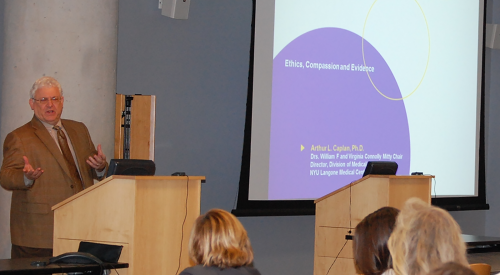Training and Development Initiatives
Learn about how FDA trains and develops staff

To ensure that FDA scientists are prepared to address the regulatory impact of today’s rapidly evolving science and technology, FDA has established a robust, state-of-the-art scientific professional development culture.
As well as required training for scientists in the laboratory and in the conduct of human-subject research, scientists can participate in Agency-wide and Center or Office scientific courses, seminars, and workshops.
This section highlights the breadth and depth of FDA activities—including external and internal collaborations— that support scientific professional development of FDA staff.
FDA promotes the professional development of its scientific staff through six primary channels:
- Providing internal staff training and education programs
- Offering educational programs for FDA staff outside the Agency
- Sponsoring lectures and seminars featuring global scientific thought leaders
- Building cross-agency collaborations
- Expanding extramural collaborations
- Providing training and education for external organizations
1. Providing internal staff training and education programs
FDA offers a broad range of training seminars, rounds, and lectures across the Agency sponsored by our product centers and offices, in which our experts present cutting-edge science at FDA.
Journal Clubs at FDA's product centers for Drugs, Medical Devices, and Tobacco (CDER, CDRH and CTP) provide a forum for staff to stay current about scientific literature by sharing information through discussion.
Many FDA laboratories have smaller group meetings to provide a chance for young scientists to present data and receive constructive feedback. Additionally, the FDA Biosciences Library offers training events to assist staff with their research.
2. Offering educational programs for FDA staff outside the Agency
When funding is available, FDA also sends staff to scientific conferences, meetings and courses. FDA also has site visit programs, such as CBER’s Regulatory Site Visit Program and CDRH’s Experiential Learning Program, where FDA staff visit industry to learn about manufacturing and clinical research.
3. Sponsoring lectures and seminars featuring global scientific thought leaders
FDA invites scientific experts from across the globe to present in seminar and lecture series as well as rounds. Some series primarily bring in experts from external organizations.
Examples are CTP's Quarterly Guest Lecture Series, the Office of the Chief Scientist's Medical Countermeasures Lecture Series, the Chief Scientist's Special Lecture Series, and the Chief Scientist's Distinguished Lecture Series. Experts in their scientific area are also recruited into Fellowship programs.
And Center courses and workshops have scientific experts present on cutting-edge topics.
4. Building cross-Agency collaborations
FDA product centers collaborate to present leading-edge science like the CBER—CDRH Regenerative Medicine Seminar Series, the CBER, CDER, and CDRH's Bone Seminar Series, the NCTR—CBER Science Training and Exchange Professional Development Program, and the CFSAN—ORA Field IQ Program.
The product centers also collaborate to present lecture series such as the Chief Scientist's Distinguished Lecture Series.
Moreover, the FDA's Scientific Professional Development Calendar on the Agency's intranet offers a one-stop-shop for announcements of FDA-wide training and education.
Agency-wide scientific groups also develop courses or workshops that feature FDA scientists and external experts, who present new science in a particular area.
5. Expanding extramural collaborations
FDA has a myriad of collaborations with academic organizations under Memoranda of Understanding that facilitate educational and training opportunities.
The Agency also collaborates with external organizations under a Cosponsorship Agreement to present lectures and public workshops.
FDA collaborations are broadening possibilities for professional development by enabling our scientific staff to conduct clinical work, teaching, or research off site.
Area federal hospitals and clinics, like NIH and Walter Reed National Medical Center, have created opportunities for FDA staff who wish to care for patients.
6. Providing training and education for external organizations
Educating and training science students and graduates is vital to increasing their knowledge of FDA’s mission and exposing them to the many different opportunities for a science career at FDA.
To this end, FDA offers numerous Fellowship, Internship, Graduate and Faculty Program opportunities.

